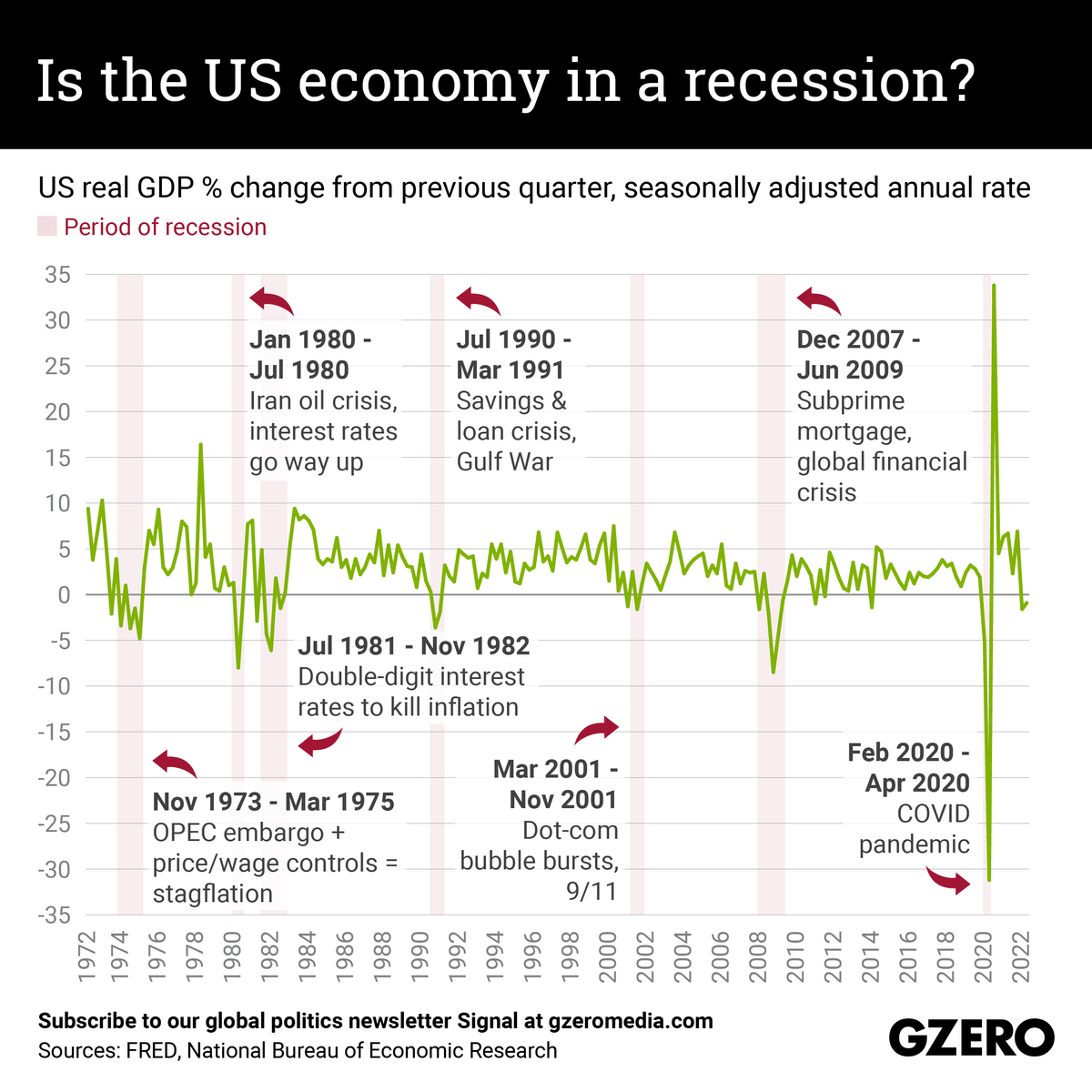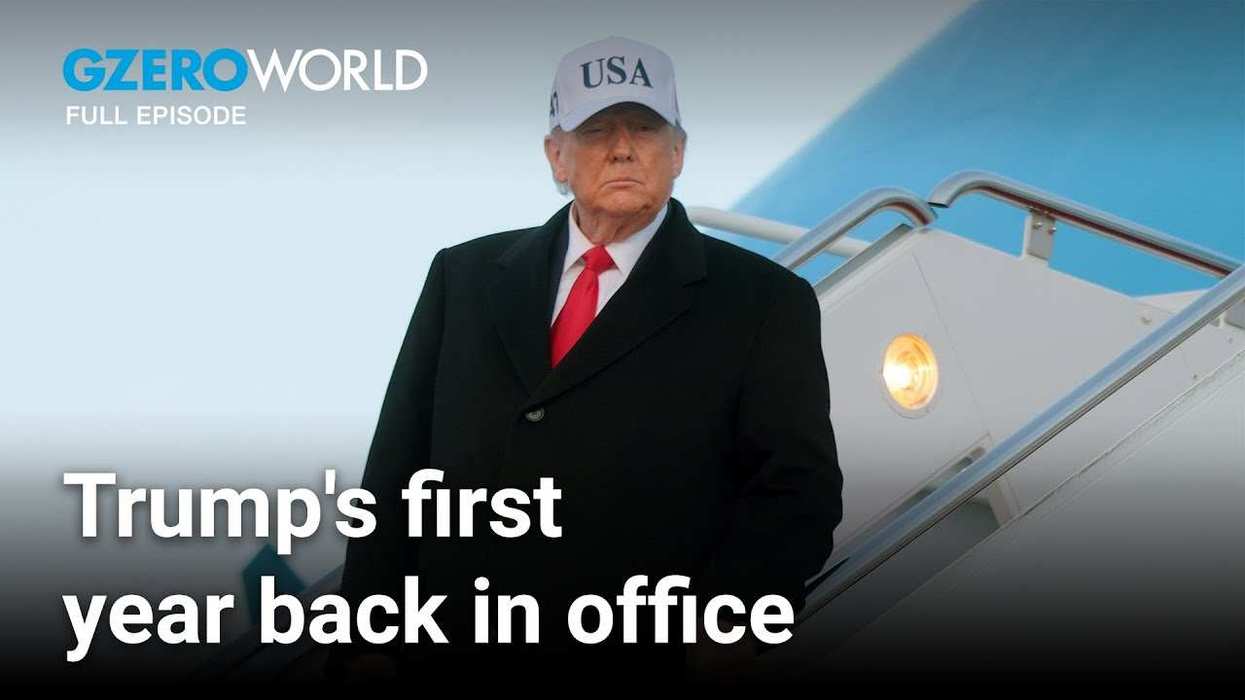The short answer is: we don't know (yet).
The US economy declined 0.9% in the second quarter of 2022 compared to the previous three months after shrinking 1.6% in January-March, entering, in theory at least, a "technical recession" — economist-speak for two consecutive quarters of economic contraction. But does that make it official? Nope.
Many economists regard that definition as too narrow because it doesn't take into account other indicators beyond real GDP performance. Indeed, the National Bureau of Economic Research, which calls the shots on US economic cycles, says, rather vaguely, that a recession is "a significant decline in economic activity that is spread across the economy and that lasts more than a few months."
To determine what qualifies as a recession, the NBER considers a bunch of other measures of economic activity. These include real wages (minus inflation), industrial activity, or employment — measured by household surveys, not the number of Americans applying for unemployment benefits, now historically low at 3.6% of the workforce.
Also, the NBER takes time to make the call. So don’t be surprised if Americans feel they're in a recession way before the experts decide to label it as such. It’s also possible to have a recession without two consecutive quarters of economic contraction, like in 2001.
In a nutshell: don't buy all the recession chatter for now, but keep an eye out. Even if the Biden administration won’t say the R-word out loud and the Fed still hopes for a soft landing, most economists agree the US economy is more likely than not headed to a recession in 2023, if not earlier.















